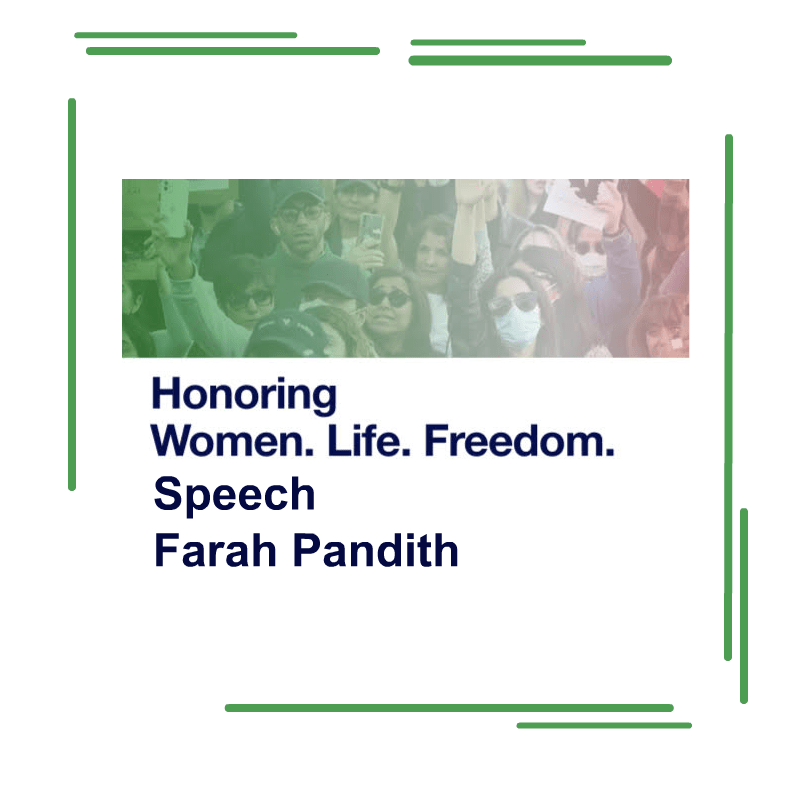
Farah Pandith | United Nations | New York City
September 14, 2023
It is with deep gratitude to the thousands of humans who have had the courage and bravery to protest the murder of Mahsa Amini’s death that I stand before you.
Standing in a safe space where I can dress as I wish, pray as I wish, live as I wish…
I am humbled by those who have no such environment yet demand their human rights. They demand them with their voices, and bodies and heart and soul.
Like many of you I have watched footage and read articles, logged various statements by global bodies and heads of state, and been inspired by regular citizens and diverse voices.
There is power in these actions – not just for what is happening within Iran to its people -- but to the rest of us who understand even more fully how vital it is that we act with solidarity, speak with solidarity and engage in solidary.
We need to raise our voices, use our free expression, increase awareness and make a better world for all.
That means doing more than you imagine and listening to those who seek to destroy female agency, kill dreams and defy logic.
Why should you listen? So you can know what to do to defeat an ideology that is rooted in hate and fear.
I have some experience with this.
I have spent decades on fighting the ideology of extremist groups that use Islam for their nefarious means. It is an outrageous form of power to take spirituality and abuse it in this way.
During the Obama administration I had the honor to travel extensively and talk with Muslims all over the world.
In these conversations I repeatedly heard young people speak of the power to act and the importance of identity – the self-expression of who they were as Muslims.
These young people wanted to live and be themselves – in whatever that meant to them -- in a diverse, modern world.
A world that had the benefit of learning from history and applying insights and compassion for all.
I talked to Muslim women in nearly a hundred countries as diverse as Argentina and Greece and Sri Lanka. Women who, like me, practiced Islam and wanted the right to be able to be who they were as they wanted to be.
In the tragic events last year -- and throughout the movement that followed -- I heard the same sentiments and felt the same passion.
The rights of women are universal. They are human.
They belong to all of us.
There is a passage in the book The Forty Rules of Love by Elif Shafak which navigates through issues of love, belonging, spirituality, oneness, religious zeal and more that I thought about a lot over this year.
It reads:
“In many ways the twenty-first century is not that different from the thirteenth century. Both will be recorded in history as times of unprecedented religious clashes, cultural misunderstandings, and a general sense of insecurity and fear of the other.” (p. 15)
This fear of the other has been nurtured globally and has manifested in ways that harken back to what we believed was ancient history.
Tragically, we are facing a reality where so-called religious beings demand a monolithic expression of their moral code.
We are here together because of this need.
We are here to reflect and remember Mahsa.
We are here to gain strength from each other as we try to build a way forward when so much tragedy has happened in the year since her death.
I join you in this effort -- and urge us all to stay the course with compassion and understanding.
Let us be the best of humanity together.